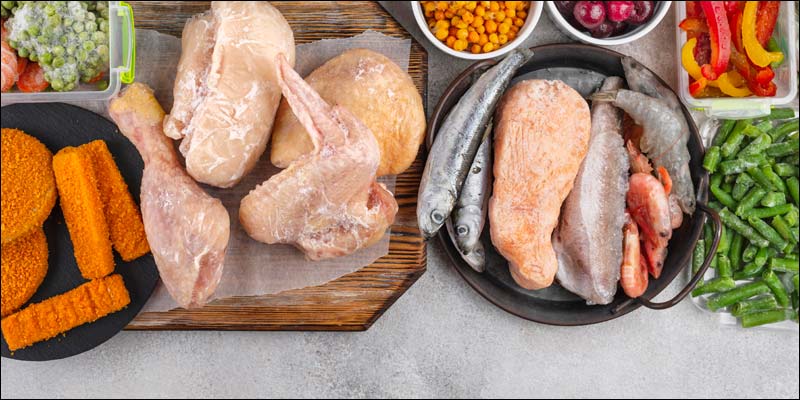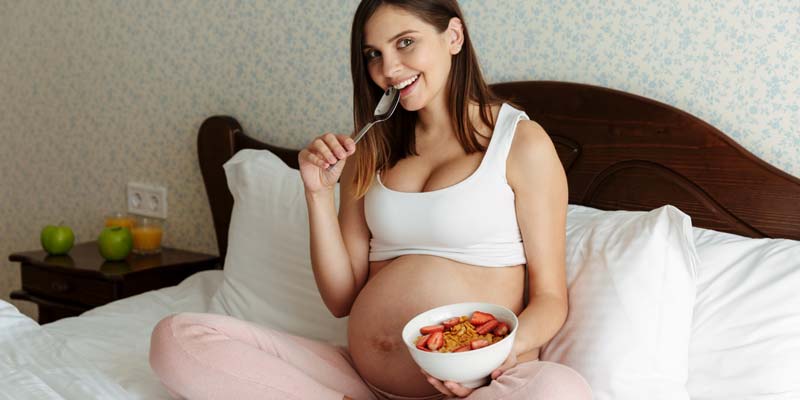Pregnancy is a beautiful journey that brings immense joy and a bundle of responsibilities. One of the most critical aspects of this journey is nutrition. What you eat during pregnancy not only impacts your health but also the development and well-being of your baby. While some foods are essential for a healthy pregnancy, there are certain foods to avoid during pregnancy to ensure the safety of both you and your baby. In this comprehensive guide, we’ll discuss the foods to avoid during pregnancy, explaining why they pose risks and offering safe alternatives.
Understanding the Importance of a Healthy Diet During Pregnancy
During pregnancy, your body undergoes significant changes to support the growth and development of your baby. A healthy diet ensures that you and your baby receive essential nutrients. However, some foods can carry harmful bacteria, toxins, or high levels of substances that may pose risks to your pregnancy. Understanding what to avoid can help you make better dietary choices and ensure a healthier pregnancy.
Raw and Undercooked Meat
Raw and undercooked meat can be a source of harmful bacteria such as Salmonella and Listeria. These bacteria can lead to infections that are particularly dangerous during pregnancy, potentially causing miscarriage or severe illness in newborns. Always ensure that meat is cooked thoroughly, reaching a safe internal temperature to kill any harmful bacteria.
Safe Alternatives:
- Cook meat until there is no pink in the center.
- Use a meat thermometer to ensure the internal temperature is safe (165°F for poultry, 160°F for ground meats).
What not to Eat When Pregnant

When you’re pregnant, eating a variety of healthy foods is beneficial for both you and your baby. However, there are certain foods you should avoid as they might make you ill or harm your baby. Additionally, some foods are safe to eat in moderation but should not be consumed in excess.
The main foods to avoid include:
- Soft cheeses
- Undercooked or raw meat, fish, and seafood
- Pre-prepared or unwashed fruits and vegetables
- Soft-serve ice cream
- Undercooked or raw eggs
- Unpasteurized milk
- Alcohol
Foods to limit include:
- Caffeine
- Certain types of fish
- Liver
Certain Fish and Seafood
While fish is an excellent source of omega-3 fatty acids, which are crucial for your baby’s brain development, certain fish contain high levels of mercury. High mercury levels can damage your baby’s developing brain and nervous system.
Fish to Avoid:
- Shark
- Swordfish
- King mackerel
- Tilefish
Safe Fish Choices:
- Salmon
- Shrimp
- Pollock
- Catfish
Ensure to eat these in moderation, limiting intake to 2-3 servings per week.
Raw Eggs and Foods Containing Raw Eggs
Raw eggs can be contaminated with Salmonella, which can cause food poisoning. Symptoms include nausea, vomiting, stomach cramps, and diarrhea. Pregnant women are more susceptible to severe symptoms, which can be harmful to the baby.
Foods to Watch Out For:
- Homemade mayonnaise
- Caesar dressing
- Raw cookie dough and cake batter
- Homemade ice cream
Safe Alternatives:
- Use pasteurized eggs for recipes that call for raw eggs.
- Avoid foods that traditionally use raw eggs or ensure they are cooked properly.
Unpasteurized Dairy Products
Unpasteurized milk and dairy products can contain Listeria, a type of bacteria that can cause listeriosis. This infection is especially dangerous during pregnancy, potentially leading to miscarriage, stillbirth, or severe illness in newborns.
Unsafe Dairy Products:
- Unpasteurized milk
- Soft cheeses like Brie, Camembert, and Roquefort
- Unpasteurized yogurt
Safe Alternatives:
- Choose pasteurized milk and dairy products.
- Opt for hard cheeses and pasteurized soft cheeses.
Deli Meats and Processed Meats
Deli meats, hot dogs, and other processed meats can harbor Listeria and other harmful bacteria. Even when stored properly, these foods can become contaminated. Heating deli meats until they are steaming hot can kill any present bacteria, making them safer to eat.
Safe Consumption Tips:
- Heat deli meats and hot dogs until steaming.
- Opt for freshly cooked meats over processed options.
Certain Fruits and Vegetables
While fruits and vegetables are generally healthy, some need extra caution. Unwashed or improperly handled produce can be contaminated with harmful bacteria or pesticides.
Fruits and Vegetables to Handle Carefully:
- Raw sprouts (such as alfalfa, clover, radish, and mung bean sprouts)
- Unwashed fruits and vegetables
Safe Consumption Tips:
- Wash all fruits and vegetables thoroughly before eating.
- Avoid raw sprouts as they are hard to clean thoroughly.
Caffeine
Excessive caffeine intake during pregnancy can lead to miscarriage or low birth weight. While it’s okay to have some caffeine, it’s important to limit your intake to ensure the safety of your baby.
Safe Caffeine Intake:
- Limit caffeine intake to 200 mg per day (about one 12-ounce cup of coffee).
- Consider decaffeinated alternatives and caffeine-free teas.
Alcohol
Alcohol is one of the most critical substances to avoid during pregnancy. Consuming alcohol can lead to fetal alcohol syndrome (FAS), which can cause severe developmental issues, birth defects, and long-term health problems.
Safe Practice:
- Completely avoid alcohol during pregnancy.
- Opt for non-alcoholic beverages and mocktails.
Artificial Sweeteners
While most artificial sweeteners are considered safe in moderation, some studies suggest that high consumption of certain sweeteners may not be advisable during pregnancy. Aspartame and saccharin are particularly controversial.
Safe Sweetener Alternatives:
- Use natural sweeteners like honey or maple syrup in moderation.
- Stevia, a natural sweetener, is also considered safe for pregnant women.
Foods High in Added Sugars and Refined Carbs
High intake of added sugars and refined carbohydrates can lead to gestational diabetes, excessive weight gain, and other complications during pregnancy. It’s important to maintain a balanced diet and limit these foods.
Foods to Limit:
- Sugary snacks and desserts
- White bread and pasta
- Sugary drinks
Healthy Alternatives:
- Whole grains like oats, quinoa, and brown rice
- Fresh fruits for natural sweetness
- Water and herbal teas instead of sugary drinks
Conclusion
Maintaining a healthy diet during pregnancy is crucial for the well-being of both mother and baby. By avoiding certain foods and making safe, nutritious choices, you can reduce the risk of complications and ensure a healthy pregnancy. Always consult with your healthcare provider for personalized advice and guidance. Remember, the key to a healthy pregnancy is not just about avoiding certain foods but also embracing a balanced and nutritious diet that supports your growing baby.
FAQs
Q1. Which fruits are avoided in pregnancy?
Papaya tops the list for obvious reasons. Raw or semi-ripe papaya contains latex, which can induce premature contractions and pose a danger to your baby. However, ripe papaya is rich in vitamins and iron.
Q2. What should a pregnant woman eat most?
Regularly consuming high-protein foods such as fish, chicken, turkey, eggs, peanut butter, nuts, and beans supports your baby’s healthy brain and heart development. Additionally, grains like brown rice, quinoa, whole-wheat pasta, and oatmeal are excellent choices during pregnancy.
Q3. Is milk good for pregnancy?
Obstetricians and general practitioners typically recommend drinking milk during pregnancy because it is rich in valuable proteins and calcium, essential for bone growth.
Q4. Is mango good for pregnancy?
Mangoes are a great source of folic acid, which helps prevent neural tube defects when consumed during pregnancy. High blood pressure, also known as pre-eclampsia, is a risk factor for miscarriages. Mangoes contain magnesium and potassium, which support healthy blood flow and help regulate blood pressure.

